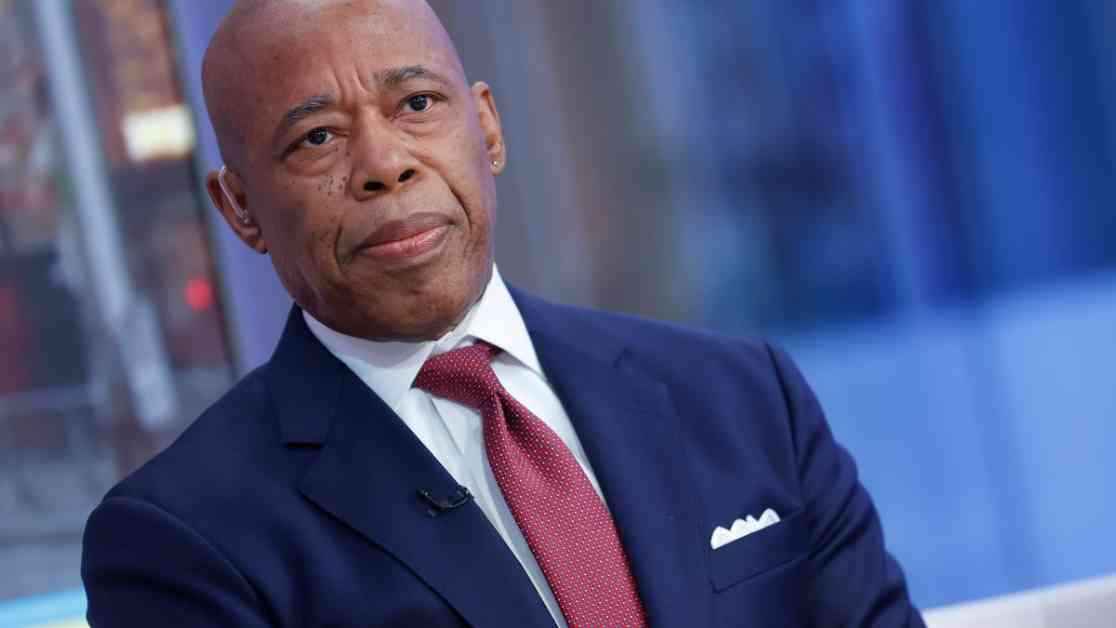The highly-anticipated trial of Eric Adams, embroiled in allegations of corruption and bribery, has hit a roadblock with the U.S. District Judge Dale E. Ho indefinitely postponing the scheduled trial set for April. This delay is in connection with the Department of Justice’s motion to dismiss the case against Adams with prejudice. While the judge has not yet made a final decision on this critical matter, a recent order filed on Friday sheds light on the complexity of the legal proceedings.
Legal Maneuvers Unfold
Adams, facing charges including conspiracy, wire fraud, soliciting illegal campaign contributions, and accepting a bribe, has found himself at the center of a legal storm. The Justice Department’s motion to dismiss the case has been met with a peculiar response from the defense, which has expressed support for the motion. This lack of adversarial testing of the government’s stance prompted the judge to appoint an independent attorney, Paul Clement, to present arguments on behalf of third parties. The legal intricacies surrounding the dismissal of an indictment have taken center stage, with the judge requesting all involved parties to address various facets of the case.
In a bid to solicit opinions and gather insights on dismissing the case, Judge Ho has set a deadline for the submission of briefs by March 7, with the possibility of a hearing on March 14. The judge has assured that a prompt ruling will follow once all relevant information is considered. By removing the trial date initially set for April 21, Ho aims to maintain the integrity of the legal process and ensure that no party is disadvantaged due to any procedural delays.
Political Ramifications and Legal Ethics
The legal battle surrounding Eric Adams has not only captured the attention of the legal fraternity but has also sparked political debates and ethical concerns. Adams’ testimony at a recent hearing, denying allegations of any quid pro quo arrangement, has clashed with the government’s argument that dropping the case is essential for the mayor to assist in President Trump’s policies. Acting Deputy U.S. Attorney General Emil Bove’s justification for dismissing the charges based on prosecutorial discretion and national security imperatives has raised eyebrows and prompted further scrutiny.
The resignation of seven prosecutors, including high-ranking officials, in protest against the directive to drop the case has underscored the ethical dilemmas and professional integrity at stake. With accusations of quid pro quo deals and concerns about the misuse of prosecutorial power, the legal battle has transcended mere criminal allegations to touch upon broader ethical and political dimensions. The involvement of former officials and legal experts advocating for a fair and impartial trial adds layers of complexity to an already contentious legal saga.
As the legal drama surrounding Eric Adams unfolds, the implications for both the legal system and political landscape remain uncertain. The balancing act between justice, political expediency, and ethical considerations will continue to shape the trajectory of this high-profile case. The decision in this case will not only impact the future of Eric Adams but will also set precedents for legal ethics, prosecutorial discretion, and the delicate interplay between law and politics.


